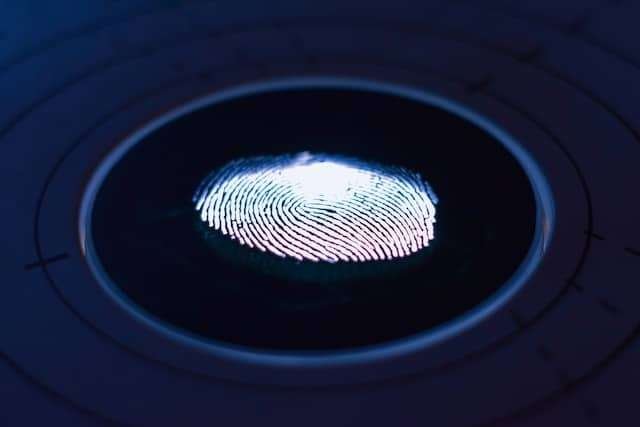Fingerprint background check is a great way to picture someone’s criminal history accurately. But they are not necessarily better than a name-based background check. Besides being legally required for certain regulated industries, fingerprint-based background checks are often used by employers to make sure that their employees are safe. It can include looking for a record of arrest that didn’t lead to a conviction.
What Does a Fingerprint Background Check Reveal?
Fingerprint background checks are often used by law enforcement and government agencies to check the criminal records of people who have been arrested. The prints can be compared to existing records in vast databases such as the FBI’s Integrated Automated Fingerprint Identification System (IAFIS) to help police identify suspects, establish crime scene timelines and solve crimes.
Many employers also require fingerprint background checks for certain jobs. Unlike traditional background checks that use your name, date of birth or social security number, fingerprint background checks use a person’s unique patterns and characteristics to confirm their identity. It can be especially helpful when an individual changes their name frequently or has numerous aliases that could confuse results.
In the past, fingerprints were taken the old-fashioned way – by pressing your fingers into ink and stamping them onto a hard card that would then be sent to an expert to compare your prints with those stored in a database. Now, however, fingerprints are captured digitally using a scanner.
Generally speaking, fingerprinting and criminal background checks will reveal any criminal convictions on your record, including those that have been sealed. If you have any stains on your history, it’s best to be upfront about them in interviews or job applications. If you have a record you want to keep secret, consider speaking with an attorney about how to expunge or seal it.
How Long Does It Take to Receive the Results?
Many employers require fingerprint background checks on all their employees due to the nature of certain jobs. Industries such as child education, medicine, and the government mandate this procedure for various reasons, including crime prevention and maintaining the safety of clients and staff members.
The fingerprinting process involves an employee going to their local police department and having their fingerprints scanned. This information is then sent to a vetting company that conducts the background check and sends the results back to the employer.
The vetting process may take longer than usual when dealing with fingerprint background checks. It is because fingerprint analysis is less accurate than a name-based background check. It is primarily because it only looks at federal crimes and not state-level offenses. Additionally, it does not show if an arrest resulted in a conviction or was dismissed.
Despite this drawback, fingerprinting is still a necessary part of the hiring process for various jobs. For example, if an applicant has a criminal record related to financial crime or other crimes irrelevant to their job role, they may be rejected for the position. It is particularly true in industries that value a high level of ethics. A fingerprint background check is not as invasive as a credit report.
Is It Safe?
Many people are surprised that their new employer requires them to undergo a fingerprint background check as part of the hiring process. This type of vetting is particularly common in industries regulated by law or dealing with public safety, such as child education, medicine, and government work. In some cases, fingerprinting is done reactively to reduce and solve crimes committed by employees.
Fingerprint background checks are often cited as the gold standard in criminal background screenings. They can be more accurate than searching by name because no two people have the same fingerprints. However, they’re not always more thoroughly checking an applicant’s record.
For example, the FBI’s national criminal database only includes federal convictions, so descriptions of misdemeanor and felony arrests from local and state authorities may not be available through this system.
Additionally, fingerprint records can contain a mix of criminal and civil information. For instance, if you have been charged with a crime but the case was dismissed or acquitted of a charge, that will show up on your record, even though it won’t be clear on a fingerprint search. It is why it’s important to be completely honest about your criminal history when applying for a job that requires fingerprinting.
Is It Legal?
Generally, fingerprint background checks involve scanning a person’s fingerprints and checking them against an FBI database of criminal records. IAFIS, an integrated automated fingerprint identification system, stores the data. The fingerprints are taken by pressing each finger on an ink pad and stamping it on a card or electronically with a live scan.
Depending on the nature of the work, some employers may require a fingerprint background check as part of their hiring process. It includes positions that involve working around children, security personnel at airports, massage therapists, and some finance industry jobs. The fingerprint-based checks are used with a name-based search to ensure the person being hired is who they claim to be.
While fingerprint screening is not a substitute for thorough vetting, it can help identify criminal records and other potentially negative information that a name-based check might miss. Both employers and job applicants need to know what a fingerprint background check entails before agreeing to one.
Moreover, it’s always best to conduct a fingerprint background check only after an employer has received consent from the candidate. Running a review without permission can lead to legal concerns, and it’s best to avoid that. However, it’s essential to understand that the FBI database is not infallible and can sometimes contain inaccurate information.









